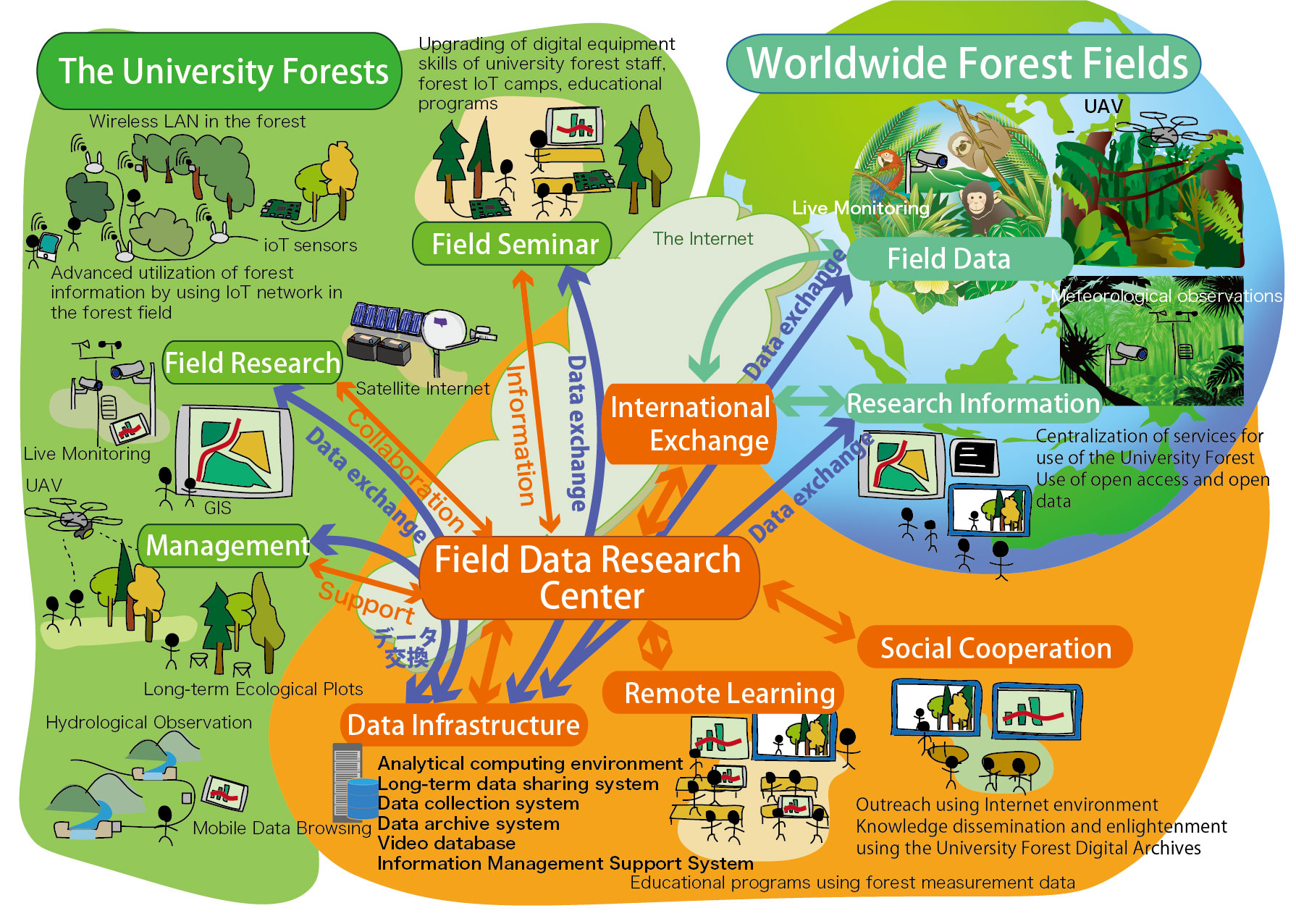- 2023-03-17
- Lecture by Field Data Research Center Director Toshihide Hirao on "Forest GX/DX and social co-creation: the University of Tokyo model of nature-based solutions" at a seminar organized by the Graduate School of Agricultural and Life Sciences.
- 2022-04-17
- Change design
- 2021-08-30
- Updated the outline
- 2021-05-17
- Created a temporary page for the FDRC.
Outline
In recent years, various research and educational activities using novel information technologies have been conducted in the University of Tokyo Forests (UTF), such as research that utilizes open data that is widely available to the public and long-term observation data that has been accumulated, and research that utilizes networks and information devices to acquire data in the field. In order to respond to such changes, the Field Data Research Center (FDRC) was established in FY2021 as an organization that specializes in handling digital information. FDRC aims to promote the advancement of research and education in new ways through the digital transformation (DX) of field and data in UTF. To this end, FDRC is engaged in research across a wide range of fields, including the development of information processing technologies suitable for field data, the development of data acquisition technologies in the field, and research on the role of field data in society and its impact on society. To promote this research, FDRC is collaborating with organizations both inside and outside the university that deal with digital information. FDRC is also building an open data release platform to support a wide range of research and educational activities that make advanced use of field data from UTF. Another important role of FDRC is to support the preservation and digitization of information assets of UTF that have not been digitized, such as drawings, photographs, physical materials, archival documents, management documents, and other academic materials. Furthermore, in addition to digitizing conventional lectures and practical training, FDRC will support new forms of educational activities that utilize networked fields and data. For example, lectures traditionally given in classrooms can be given in the field, and digital technology can be used in classrooms to provide virtual field experiential learning. In addition, the DX of the field and data of UTF will improve the efficiency of management operations and provide comprehensive support for research and educational activities in UTF.

Member
Director Hirao, Toshihide, Ph.D.
・The University of Tokyo Chichibu Forest,
Laboratory of Forest Ecosystem
- Research: Hirao Lab.
Laboratory of Forest Human Society Relationship
- ResearchCyberforest (facebook)、Cyberforest for Environmental Education (CF4EE)
Technical Director Oishi, Satoru

